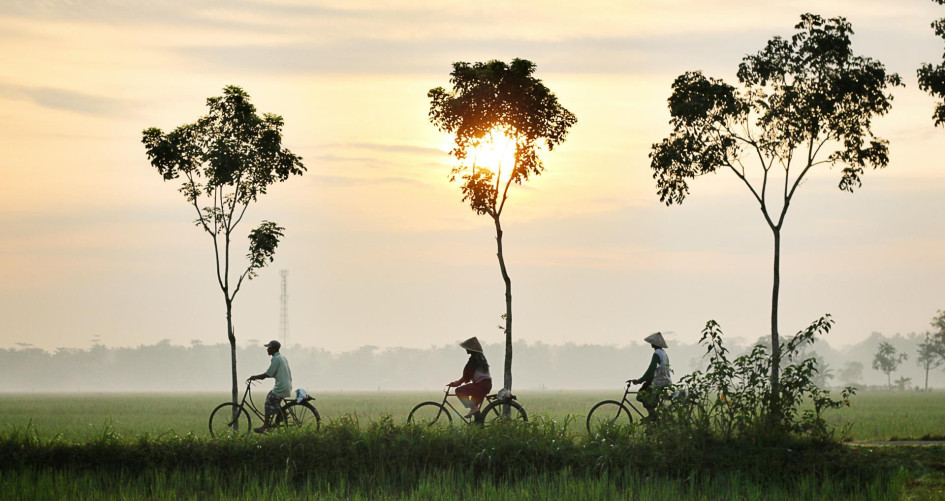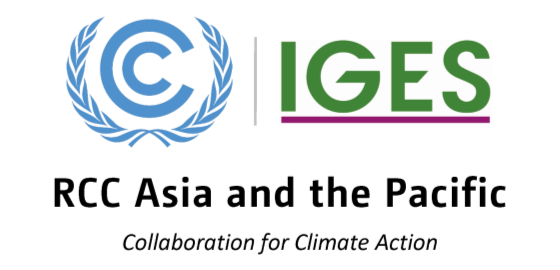
Objectives
The PCCB, NAP Global Network, NDC Partnership, ICCCAD, LUCCC, UNESCAP, UN Environment, and the UNFCCC secretariat are organizing a full day workshop during the Asia-Pacific Climate Week, where universities and research institutions will have the opportunity to exchange views and experiences on addressing capacity-building gaps and needs, with relevant stakeholders involved in the preparation and implementation of NAPs and NDCs with a view to accelerating climate action and ambition.
The main rationale for this cooperation is to provide a space where universities and research institutions will be able to interact and exchange experiences with the relevant stakeholders involved in building capacity for the design and implementation of NAPs and NDCs, thereby creating momentum towards the UN Climate Summit in September 2019. More particularly the regional workshop aims to:
-
Increase the understanding of capacity-building gaps and needs of developing countries when it comes to boosting ambition and accelerating action to prepare and implement NDCs and NAPs and of the role local researchers, universities and research institutions can play in building and retaining the required capacity;
-
Foster a dialogue and facilitate the sharing of experiences and good practices related to effective collaboration among universities/research institutions, governments and the private sector for designing and providing tools, guidance, platforms, and advisory support aimed at strengthening capacity for preparing and/or implementing NAPs and NDCs;
-
Encourage a discussion on how to interpret and match knowledge needs when enhancing implementation and increasing ambition of NDCs and NAPs, aiming to translate these into researchable questions
-
Jointly prioritize the capacity-building gaps with a view to discussing and identifying ways to build the capacity of universities/research institutions and governments to collaborate and bridge these gaps.
Draft Agenda
| Time | Description of the session | Facilitation |
| 8:30-9:00 | REGISTRATION | |
| 9:00-9:30 | Welcoming remarks | |
| 09:30-10:30 |
Panel discussion: Fostering effective collaboration between universities and national research institutions with national/regional stakeholders when enhancing mitigation and adaptation commitments: a change of paradigm |
NDC Partnership |
| 10:30-10:45 | COFFEE BREAK | |
| 10:45-11:45 | Session 1: Identifying developing countries’ capacity-building gaps and needs related to the preparation and implementation of NAPs and NDCs |
UNESCAP |
| Results | ||
| 12:45-13:45 | LUNCH | |
| 13:45-14:45 | Session 2: Bridging capacity-building gaps and needs: the role of local, national and regional universities and research institutions |
UNESCAP UN Environment PCCB/UNFCCC secretariat NDC Partnership NAP Global Network ICCCAD LUCCC |
| 14:45-15:30 | Results | |
| 15:30-15:45 | COFFEE BREAK | |
| 15:45-16:45 | Session 3: Next steps: Identifying response actions to collaborate and bridge capacity-building gaps and needs at a regional level |
UNESCAP UN Environment PCCB/UNFCCC secretariat NDC Partnership NAP Global Network ICCCAD LUCCC |
| 16:45-17:30 | Results | |
| 17:30-18:00 | Closing remarks and next steps | |

Objectives
The PCCB, NAP Global Network, NDC Partnership, ICCCAD, LUCCC, UNESCAP, UN Environment, and the UNFCCC secretariat are organizing a full day workshop during the Asia-Pacific Climate Week, where universities and research institutions will have the opportunity to exchange views and experiences on addressing capacity-building gaps and needs, with relevant stakeholders involved in the preparation and implementation of NAPs and NDCs with a view to accelerating climate action and ambition.
The main rationale for this cooperation is to provide a space where universities and research institutions will be able to interact and exchange experiences with the relevant stakeholders involved in building capacity for the design and implementation of NAPs and NDCs, thereby creating momentum towards the UN Climate Summit in September 2019. More particularly the regional workshop aims to:
-
Increase the understanding of capacity-building gaps and needs of developing countries when it comes to boosting ambition and accelerating action to prepare and implement NDCs and NAPs and of the role local researchers, universities and research institutions can play in building and retaining the required capacity;
-
Foster a dialogue and facilitate the sharing of experiences and good practices related to effective collaboration among universities/research institutions, governments and the private sector for designing and providing tools, guidance, platforms, and advisory support aimed at strengthening capacity for preparing and/or implementing NAPs and NDCs;
-
Encourage a discussion on how to interpret and match knowledge needs when enhancing implementation and increasing ambition of NDCs and NAPs, aiming to translate these into researchable questions
-
Jointly prioritize the capacity-building gaps with a view to discussing and identifying ways to build the capacity of universities/research institutions and governments to collaborate and bridge these gaps.
Draft Agenda
| Time | Description of the session | Facilitation |
| 8:30-9:00 | REGISTRATION | |
| 9:00-9:30 | Welcoming remarks | |
| 09:30-10:30 |
Panel discussion: Fostering effective collaboration between universities and national research institutions with national/regional stakeholders when enhancing mitigation and adaptation commitments: a change of paradigm |
NDC Partnership |
| 10:30-10:45 | COFFEE BREAK | |
| 10:45-11:45 | Session 1: Identifying developing countries’ capacity-building gaps and needs related to the preparation and implementation of NAPs and NDCs |
UNESCAP |
| Results | ||
| 12:45-13:45 | LUNCH | |
| 13:45-14:45 | Session 2: Bridging capacity-building gaps and needs: the role of local, national and regional universities and research institutions |
UNESCAP UN Environment PCCB/UNFCCC secretariat NDC Partnership NAP Global Network ICCCAD LUCCC |
| 14:45-15:30 | Results | |
| 15:30-15:45 | COFFEE BREAK | |
| 15:45-16:45 | Session 3: Next steps: Identifying response actions to collaborate and bridge capacity-building gaps and needs at a regional level |
UNESCAP UN Environment PCCB/UNFCCC secretariat NDC Partnership NAP Global Network ICCCAD LUCCC |
| 16:45-17:30 | Results | |
| 17:30-18:00 | Closing remarks and next steps | |
